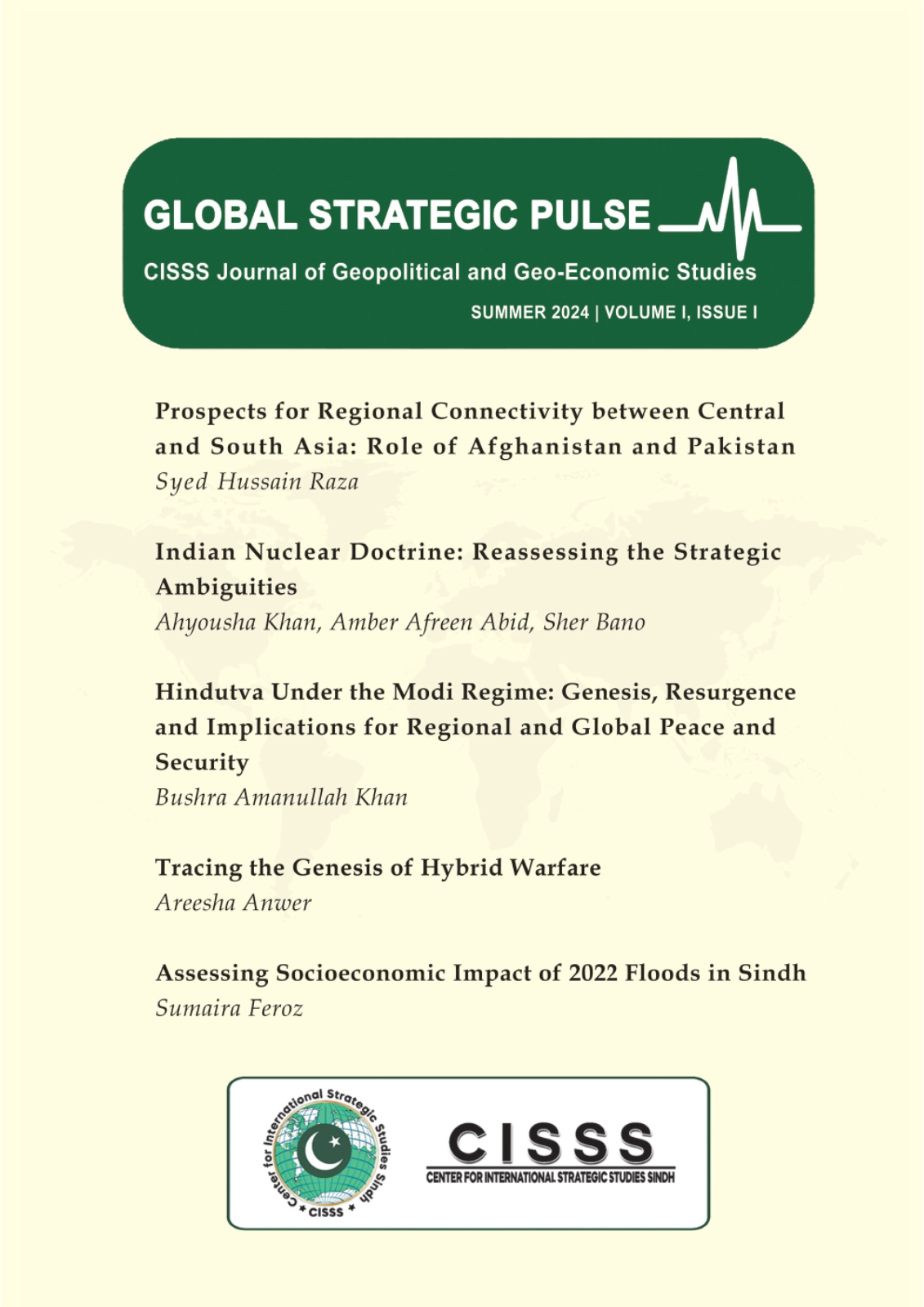Indian Nuclear Doctrine: Reassessing the Strategic Ambiguities
Keywords:
Nuclear Weapons, Indian Nuclear Doctrine, No First Use, Credible Minimum Deterrence, Strategic StabilityAbstract
The Indian nuclear doctrine, lacking parliamentary approval, comprises a series of statements made by government officials rather than a formal document binding the government. Originating in the Draft Indian Nuclear Doctrine of August 1999 announced by Brajesh Misra, subsequent statements have seemingly altered the essence and structure of the original draft, exemplified by the operationalization in January 2003. The No First Use (NFU) statement, a key component, has been subject to diverse interpretations, with some officials introducing nuances and others denying alterations. This paper contends that certain statements intentionally introduce ambiguity, while others may result from confusion or the complexities of addressing international concerns and the imperatives of a nuclear Pakistan. The study comprehensively analyses the Indian nuclear doctrine to highlight underlying contradictions and disposition within the country’s nuclear force posture. Nuclear doctrines serve as guiding principles for the development, deployment, and conditions under which nuclear weapons could be used. However, the Indian nuclear doctrine and its force posture sometimes exhibit contradictions. Scholars are increasingly debating whether these disparities are unintended or deliberate. Critical analysis indicates a deliberate shift from the original NFU, with subsequent statements crafted to generate ambiguity intentionally. Deliberately induced ambiguity, particularly in the context of NFU and the nuclear command and control system, is a cause of concern for Pakistan. It creates uncertainty, contributes to an arms race and poses a threat to regional peace and strategic stability.

Downloads
Published
Issue
Section
License
Copyright (c) 2024 Ahyousha Khan, Amber Afreen Abid, Sher Bano (Author)

This work is licensed under a Creative Commons Attribution 4.0 International License.
All articles are permanently available online to the public without restrictions or subscription fees. All articles are free to be used, cited, and distributed, on condition that appropriate acknowledgement is included. Authors are the copyright holders of their original contributions. The published article is simultaneously licensed under a Creative Commons (CC) Attribution License. “A CC license is used when an author wants to give people the right to share, use, and build upon a work that they have created” Wikipedia.

